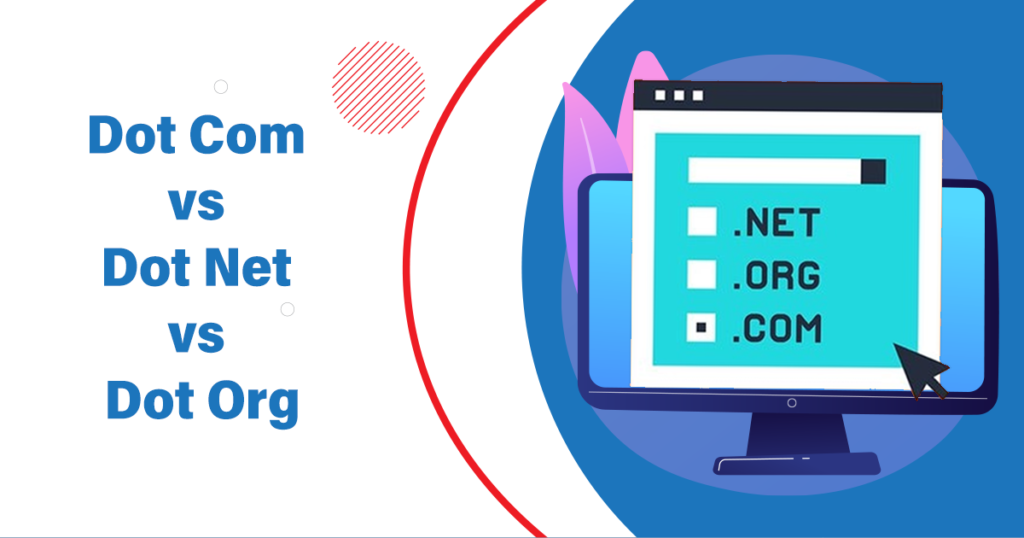Are you about to start a business website or a blog and you are in the middle of deciding which extension to select? You might be wondering, which of them is more unique? How can I select domain extensions? What is the difference between these extensions?
A similar thing happened to me when I was going through the selection process. So I have properly organized my process to help someone, too.
It is important to note that, at the early stages of the Internet age, domain extensions were limited. The first six domain extensions were established by the Internet Assigned Numbers Authority (IANA). This blog post focuses on only three.
Let’s get going.
The Domain Extensions: What are they?
Domain extension, also known as Top-level domain (TLD), is basically the suffix that comes after the domain in a web address.The Internet’s Domain Name System (DNS) is in charge of managing TLDs. DNS a service that converts domain names into Internet Protocol (IP) address.
Occasionally, domains tend to enhance the user experience by reducing the number of characters users type. But if made overly difficult, they can lead to confusion. It is advised that companies register a TLD that is straightforward and memorable.
Does Domain Extension matter?
Earlier on, we established that domain extension improves user experience. So YES, domain extension matters. So I will briefly elaborate on the importance of domain extensions.
Identification:-It is the easiest way customers can identify and locate you on the internet.
Brand positions:-It describes how your business is different from your competitors and where or how it is positioned in the customer’s minds.
Digital touchpoint:-Websites are now the point where customers interact with your product online. These interactions are necessary to create brand awareness, attract and retain existing ones.
First impressions:-“You only have one chance to make a solid first impression, and internet users are the ones who will judge you on it.” Harvey Mackay. So your domain name, website development, and graphics should be user-friendly.
Dot Com vs Dot Net vs Dot Org

Globally, we have three types of extensions:-restricted, unrestricted, and country-code domain extensions. However, the most common unrestricted domain extensions are .com, .net and .org.
This part of the article gives you an overview of the pros and cons of these extensions, which will assist your selection process.
The .Com Domain Extension
This is the most popular and is referred to as the king of all extensions. .Com simply stands for commercial. It was created with the idea of making money.
It is easy for users to associate with commercial extensions because of its memorability.
The only challenge associated with this is competition. When the .com you desired is already chosen, next step is to buy it and it is usually expensive.
The .Net Domain Extensions
The net in the .net is referred to as network. This was meant for internet service providers and businesses that have something to do with the online communities.
So if your business falls within online services then .net is meant for you. However, it becomes a problem when your competitor uses the .com alternative to your website.
The .Org Domain Extensions
The extension(.org) stands for an organization, which was initially meant for non-profit and charity organizations. One positive thing associated with it is trust and a positive image.
They are readily available, so if you can’t find your domain with .com or .net, there is a better chance you could find that .org.
Using this extension implies all commercial activities are limited.
Final Thoughts
I hope that this post gives you a glimpse of these domain extensions, what they stand for and what business they’ll be good for. This should be enough to assist you in your selection process.
